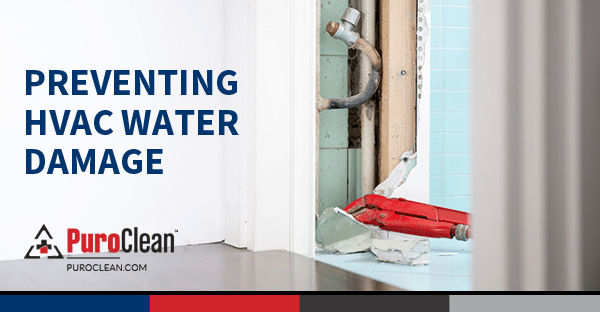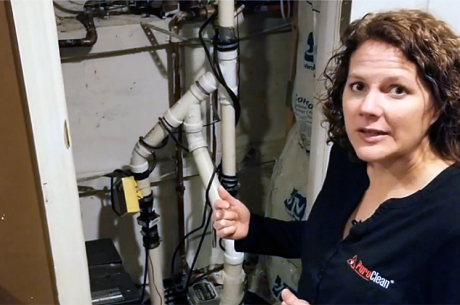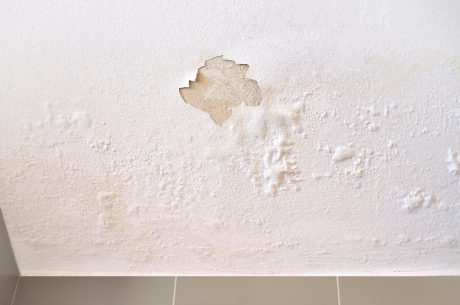A sewage backup in a basement can be daunting. Aside from spending time and money to fix a sewage backup problem, sewage flooding also presents serious health hazards. Sewage contains contaminants like bacteria, fungi, parasites, or viruses, which makes dealing with the flooding yourself a health risk.
Instead of trying to fix it yourself, it’s best to call a pro. Not only is a DIY job dangerous, but moisture may hide behind walls, and further problems like mold growth can follow. A professional restoration team can address the clogged sewage drains and dry your basement.
Handle Sewer Backups with Caution
Many sewage backups are caused by clogged drains or sewer line issues. However, some backups may signal bigger problems, like structural damage or gas leaks. For example, a broken sewer line can destabilize the soil around your home, leading to foundation shifts or cracks. These issues can weaken your home’s structure and nearby gas lines, raising the risk of leaks.
Sewage backups can also cause methane gas buildups. Methane is flammable and can create hazardous conditions, especially in enclosed spaces. Quick action protects your home and its occupants.
How to Deal with a Sewer Backup
Here’s what you can do to mitigate the damage in your basement before the restoration team arrives:
Take Immediate Safety Precautions
-
Evacuate the Flooded Area: At the first sign of a sewage backup, stay out of the area to avoid exposure to contaminants. Also, keep pets and children away from the area. This step is crucial for the safety of you, your family and your pets.
-
Turn Off Electrical Power: If you can safely reach the fuse box, turn off the power in the flooded area. Electrical wires or appliances might touch standing water or wet materials, which could cause an electric shock. Avoid contact with electrical devices if you can’t reach the main circuit breaker. (See: How to shut off utilities during a disaster.)
-
Check for Gas Leaks: If you smell gas or suspect a gas leak, leave the area immediately and call your gas company. To avoid spark danger, don’t t try to turn on any switches or devices.
-
Avoid Using Appliances: Do not use any electrical appliances, such as dehumidifiers or heaters, until the area has been professionally cleaned and restored. As mentioned above, this helps prevent sparks and electrical shock hazards.
-
Check for Structural Damage: If you suspect your sewage issue disturbed the ground around your home, check for structural damage. Look for cracks in walls or floors. If you suspect structural problems, avoid entering the area and wait for a professional assessment.
Use Personal Protection Measures
- Wear Protective Gear: Before entering the contaminated area, wear protective clothing, including a facemask, eyeglasses, gloves, and rubber boots. This personal protective equipment (PPE) helps protect against exposure to harmful bacteria, viruses, and other contaminants.
Prevent Further Damage
-
Shut Off the Main Water Line: Turn off the main water to prevent more water from entering the basement.
-
Avoid Using the Water Supply: Do not use the water in your home (toilets, sinks, and showers) until the sewage backup has been resolved. Using the water can add more water to an overloaded system and worsen the situation.
-
Contain the Water: If possible, use barriers such as sandbags to prevent the contaminated water from spreading to other parts of your home.
Document and Notify
-
Document Damage: Take photos or videos of the area and any damaged items. Photo documentation will help when filing insurance claims and assessing the extent of the damage.
-
Notify Your Insurance Company: Contact your insurance agent and report the sewage backup. Remember, standard homeowners insurance does not cover sewer backups unless you’ve purchased extra endorsements for sewers and drains. (Learn more about homeowners insurance and water damage.)
- Inform Municipal Authorities: If your home is connected to a public sewer, notify the relevant water or sewer department. They may need to fix issues in the public sewer system.
Take Initial Mitigation Steps
- Ventilate the Area: Open windows and doors and let fresh air circulate. This reduces odors and the buildup of harmful gases.
- Remove Uncontaminated Items: If it’s safe, remove items not contaminated by the black water and store them in a secure, dry place.
Prepare for Professional Restoration
- Prepare for the Restoration Team: Clear a path so the restoration team can access the area easily. Remove any obstacles that may block their equipment or get in the way of their work. Also, make sure the area is safe for them to operate in.
Learn more about what causes sewage backups to help prevent these disasters in the future.
Get Fast, Professional Sewer Backup Help
PuroClean of Matawan is a leading damage remediation company serving residential and commercial clients. We specialize in water damage and biohazard cleanup, including sewage cleanup, ensuring your home or business is restored safely and effectively.
We serve our neighbors in Matawan, Old Bridge, South Amboy, Keyport, and nearby areas. Don’t hesitate to seek professional help to protect your property and health. Call PuroClean of Matawan today at (732) 351-2442.




 PuroClean of Matawan
PuroClean of Matawan